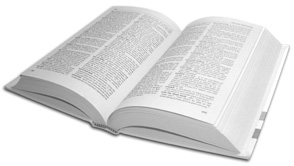Goodbye, OED
by Egatz
 Once, in 1994, I found myself in a car with some well-known literary intelligentsia traveling to a poetry conference. It was a seminar on a topic once considered very important. Like everything, what was once popular buzz eventually becomes trivia. This is something all artists should keep in mind, but I digress, as usual.
Once, in 1994, I found myself in a car with some well-known literary intelligentsia traveling to a poetry conference. It was a seminar on a topic once considered very important. Like everything, what was once popular buzz eventually becomes trivia. This is something all artists should keep in mind, but I digress, as usual.
I was the only passenger in said car with my own Internet domain. Most people that year thought they were wired into the “Information Superhighway” if they had an AOL account. After all, it was all just one big series of tubes, right?
Somehow, between the mind-bending Gilbert and Sullivan tunes, talk turned to the Oxford English Dictionary. My traveling companions in the car were still reeling and heartbroken from just a few years earlier when the OED had been released on CD-ROM. Who, after all, didn’t want to have another 150 pounds of dead trees in their home?
I was a poor graduate student at the time, and couldn’t afford the CD-ROM version, let alone any version of this classic key to the English language. In those early days of Netscape Navigator, ridiculing comments were thrown toward the backseat when I suggested it was quicker—not necessarily better—to go to one of the nascent online dictionaries at the time. Nothing, after all, could compete with with the Oxford English Dictionary, I was admonished.
The intelligentsia fell victim to what often happens to engineers. They couldn’t imagine users might have different needs, uses and workarounds completely different from their own. They couldn’t fathom using “a lesser source” definition, or a less-vertical and probing analysis of words they had to look up. Why would anyone not want to know where the first documented use of a particular word in English was needed, nor the etymology of said word? Intelligentsia are like that, and they’re entitled to be. They’ve worked hard, foregone a lifetime of sitcoms, and run in the right circles which will get you into charity contributor circles at a discount.
My old traveling companions from that road trip have either embraced digital content or are about to have another serious slap of reality upside the head. With sales of the Oxford English Dictionary’s current edition sucking serious wind due to free Internet alternatives, publisher Oxford University Press has announced it’s game over for the 150-pound 20-volume dead tree edition. Countless forests and their inhabitants are breathing easier. Plenty of trees will die in the meantime, though. Although you can subscribe to the Web-based version of the OED for a fee, it looks like the next edition won’t be out for another ten years.
The Telegraph published an excellent article on the state of the OED, and quotes author Simon Winchester as saying, “Until six months ago I was clinging to the idea printed books would likely last forever. Since the arrival of the iPad I am now wholly convinced otherwise. The printed book is about to vanish at extraordinary speed. I have two complete OEDs, but never consult them—I use the online OED five or six times daily. The same with many of my reference books—and soon with most. Books are about to vanish; reading is about to expand as a pastime; these are inescapable realities.”
There’s little doubt Samuel Johnson’s project is the definitive authority on the English language. What my old companions could not see in the mid-1990s was Americans will always choose convenience over quality, as I love to frequently quote my friend David Biedny. If the opposite was true, we’d all be using OS X instead of the cheap and syphilitic abomination that is Windows, and Betamax would’ve never been usurped by VHS technology. The list goes on and on.
It’s almost predictable the bible of the English language has never turned a profit, according to its publishers. There’s just not enough intelligentsia around willing to buy the Oxford English Dictionary, either online, CD-ROM, or the soon-to-be-obsolete dead tree edition. Time will tell what Apple will eventually charge for the iBookstore edition. Until then, I’ll figure something out, as many other writers seem to have.